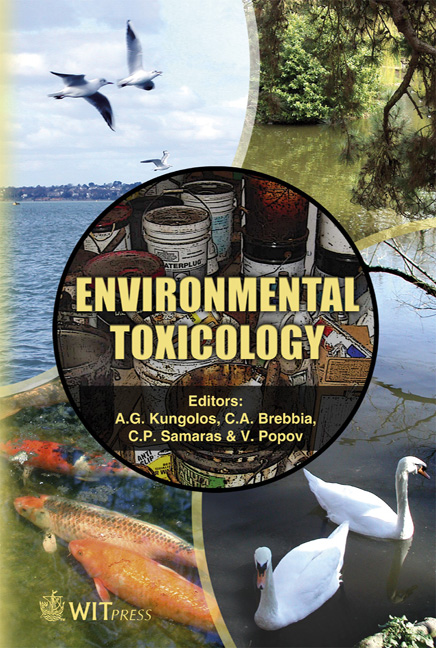How To Predict The Potential Effect Of Chemicals On Human Health: An Extended Question Of Environmental Toxicology
Price
Free (open access)
Transaction
Volume
10
Pages
1
Published
2006
Size
235 kb
Paper DOI
10.2495/ETOX060011
Copyright
WIT Press
Author(s)
A. Mueller, C. Graebsch, G. Wichmann, M. Bauer & O. Herbarth
Abstract
Often the question is how you can decide whether a chemical affects human health. The problem of human cells is that these cells loose some properties if they have been isolated from the tissue. Considering this the single cell organism Tetrahymena pyriformis was chosen. It is comparable in sensitiveness and responsiveness to human tissue cells, is an organism and independent from tissue and is a model for human respiratory epithelium-cell functionalities. The effects of extracts bioaerosols (mould spores) and associated mycotoxins (gliotoxin and penicilic acid) are of special interest. The following end points have been investigated: viability (cell count), energy levels (adenosine-5’-triphosphate content), and cell respiration (oxygen consumption). Effects on cell proliferation and on physiological processes are suitable indicators for the different impact of chemicals. T. pyriformis is a suitable organism to study effects of ubiquitous chemicals. Keywords: toxicology, model system, Tetrahymena pyriformis, mycotoxin 1 Introduction A lot of chemicals have been detected in the environment. The problem is to decide whether a chemical affects human health and human well being or not. To
Keywords
toxicology, model system, Tetrahymena pyriformis, mycotoxin





